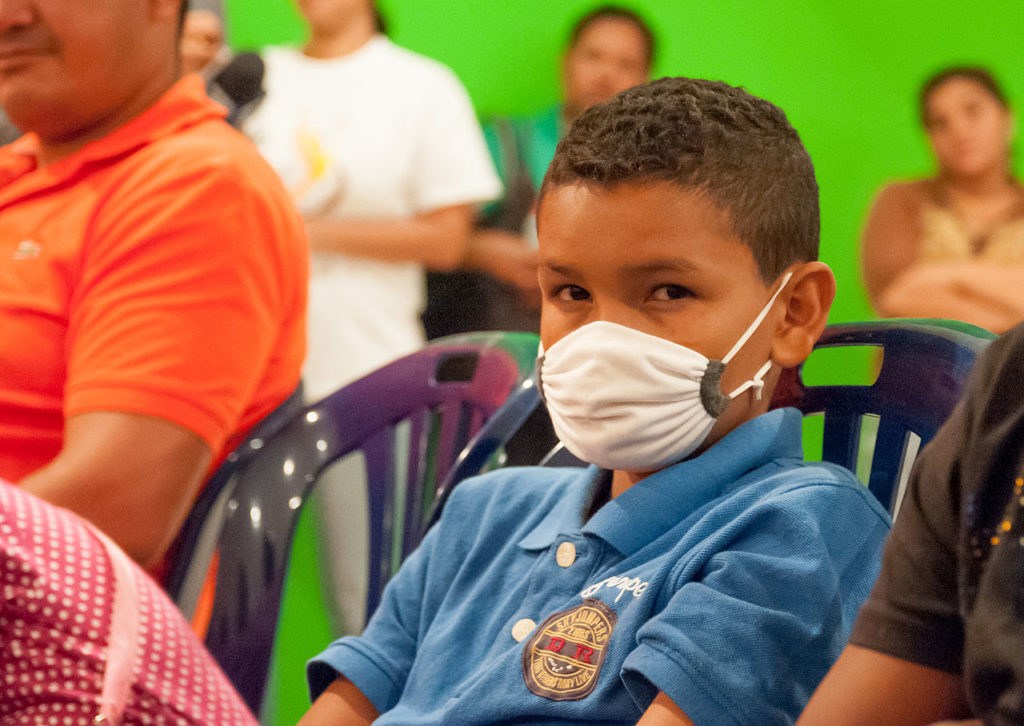Children who are infected by the Covid-19 virus are generally assumed to be asymptomatic, and unlikely to suffer the effects of the disease themselves, or pass it on to older age groups.
The supposition, at any rate, is at the rush worldwide to bring children back to school as the new school year begins. As long as measures including keeping children in fixed bubbles, mask wearing where indicated and social distancing everywhere else are observed, the conventional wisdom goes, children present no risk to themselves or others.
However, according to a study by the University of Texas Health Science Center at San Antonio, children infected by Covid-19, although asymptomatic, show signs they might suffer long-term effects of cardiac inflammation.
Children under the age of 12 are considered to be functionally immune to Covid-19 – in Belgium, they are not obliged to wear a mask in circumstances where adults have to.
They are also considered to be robustly resistant to the disease when they are infected, with the only juvenile casualties being children who already suffered from pre-existing conditions.
However, some children who have been infected with Covid-19, according to the study, later demonstrate the signs and symptoms of multisystem inflammatory syndrome in children (MIS-C), three or four weeks after being infected, apparently without symptoms.
“According to the literature, children did not need to exhibit the classic upper respiratory symptoms of COVID-19 to develop MIS-C, which is frightening,” Dr. Alvaro Moreira, lead author and neonatologist said.
“Children might have no symptoms, so no one knew they had the disease, and a few weeks later, they may develop this exaggerated inflammation in the body.”
“This is a new childhood disease that is believed to be associated with SARS-CoV-2,” Dr. Moreira said.
“It can be lethal because it affects multiple organ systems. Whether it be the heart and the lungs, the gastrointestinal system or the neurologic system, it has so many different faces that initially it was challenging for clinicians to understand.”
The UTexas study is published in the latest edition of the journal EClinicalMedicine, a publication of The Lancet.
Alan Hope
The Brussels Times

